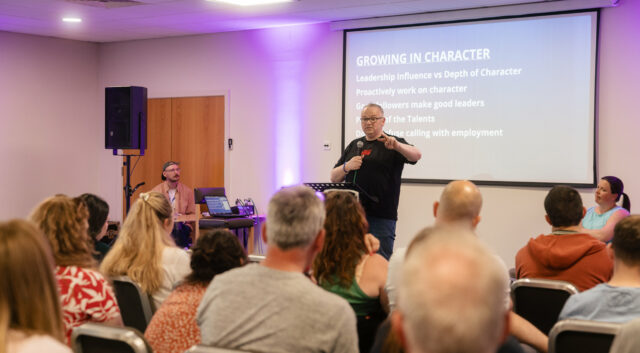This last season of life has been extremely difficult for everyone. There are big losses endured and heaps of little ones that have accumulated. The combination of these adds a great weight to our minds, bodies and souls.
In the midst of this grief and loss that we have been subject to over the last year, there is an invitation from God to process these traumas and experiences with him. One of the ways he is inviting us to do this is through a practice that shows up in the Old Testament and has been used by every generation of Christian. The practice of lament.
Sometimes on the journey of lament we find ourselves resistant to approaching our true feelings and expressing them authentically to God. However, we find an amazing example and encouragement in the life of Jesus. When Jesus was at his most vulnerable, when he was at his most desperate, he did not hide his feelings – he articulated his emotions, his desires and his wants to God. In the garden before his betrayal we see him lamenting and crying out to God to change his situation. In the Gospels it says he was in such a state of anguish it was as if he was sweating droplets of blood and that an angel came to comfort him, but even after this he cried out for God to change what was happening.
We then see the great lament of Jesus’ heart surface again the next day, when on the cross he cried; “God, why have you forsaken me.” Not only were these the words of Jesus’ inner turmoil at the time, but they were quoted words from the great Psalm of lament, Psalm 22. Which begins with, “My God, my God, why have you forsaken me?” and ends with “He has done it!” or in other words, “It is finished.” Jesus not only quoted this lament, he lived it, expressed it through every fiber of his being. And in so doing points a way forward for us to have confidence in our lament before our God.
How can I lament?
To articulate our own lament we can use the Psalms as a guide:
- We start by choosing a wrong or a sorrow, done to us, by us, or felt on behalf of others. It could also be a strong longing or desire, perhaps a hope which has been deferred.
- We then express how it is affecting us emotionally, physically, psychologically. An example of this could be; “My tears have been my food day and night.” or “My heart has turned to wax.” It could be poetic, it could be literal, it’s up to you.
- We then might write out some rememberings of past experiences with God. Psalm writers would accusingly “blame” God for their faith. “You made me trust in you since the womb…”. Many times we see lamenters remembering times when faith was easier, or worship was emotionally satisfying.
- We then cry out for help, “But you Lord, do not be far from me.”
- Then there is the choice. All great lament Psalms, turn at some point, in the midst of remembering our love, or an experience or for seemingly no reason, we choose to walk out what we knew once about God, though it feels hard now. “I will declare your name to my people…”
- Then write down the truth of God. “For dominion belongs to the Lord… all who go down to the dust will kneel before him.” Declare his truth.
We spend as much time in each step as we need. Pouring out our hearts, our cares, and our sorrows to the Lord. Worshipping with our tears, our frustration, and our doubts. In the end we intimately connect to a God who knows first hand our suffering, who experienced sorrow, longing, betrayal and death. And we journey with Jesus to the garden, to the cross, and lament side by side with our Lord. Realising we are not alone, we have one who is always with us. Even in the depths of our pain.









